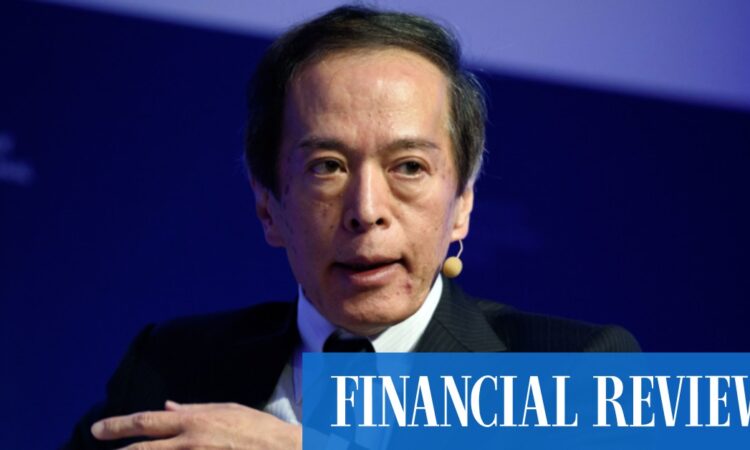
“That suggests that the Ministry of Finance’s attempts at scaring speculators away from further increasing their short yen positions could continue for some weeks.”
Top currency official Masato Kanda has given an example of a 10-yen move over one month as a rapid one. Japan’s currency has weakened by about 7 yen per US dollar over the last month, but it fell more than 2 per cent last week alone and is down more than 10 per cent this year.
”Authorities may say they don’t target levels per se, but they do pay close attention to the trend and the rate of change, and current levels suggest they have to act soon or risk facing a credibility crisis,” said Chris Weston, head of research at Pepperstone Group. “The FX market is almost taking them on like the bond vigilantes of old.”
One reason for Japan’s seeming reluctance to act may be that intervention alone cannot alter the wide gulf in interest rates that’s in part driving the yen’s decline.
Strategists at Goldman Sachs say the global macroeconomic background points to further yen weakness and that may make it tough for intervention to succeed.
Risk of intervention
“Our baseline outlook of solid growth, gradual policy adjustments and upside risks to forward rates is a very negative mix for the yen,” wrote a team including Kamakshya Trivedi, the head of global currency, rates and emerging market strategy.
“The only question then is the extent to which Japan policymakers will push against yen depreciation, but we think the tools are limited.”
Still, the risk of intervention will rise materially if the yen continues to underperform other assets like it did on Friday, the Goldman strategists added. The currency fell 1.7 per cent that day, the most in six months.
It’s also the case that a weaker yen is not necessarily that bad for Japan, said Deutsche Bank’s global head of foreign exchange research, George Saravelos. The currency’s decline isn’t causing an inflation problem, and is pushing up the value of overseas assets held by Japanese investors, he said in a note.
After Friday’s BoJ policy decision, governor Kazuo Ueda played down the impact of the weak yen on inflation, saying the exchange rate continues to benefit the economy by boosting demand.
“Japan is following a policy of benign neglect for the yen,” Mr Saravelos said. “The possibility of intervention can’t be ruled out if the market turns disorderly, but it is also notable that governor Ueda played down the importance of the yen … as well as signalling no urgency to hike rates.”
For their part, traders seem to be positioned against a successful intervention by Japan. In the run-up to the BoJ meeting, combined bets by hedge funds and asset managers on the currency’s weakness reached the most on record, according to Commodity Futures Trading Commission data.
Meanwhile, angst is rising, as evidenced in a jump in measures of implied volatility for the pair last week.
While being short the Japanese currency is risky, bearish speculators will likely be planning to buy US dollar-yen again at lower levels should officials act, said Mr Weston.
“I can imagine hedge funds setting ‘algos’ with limit orders 400 to 500 pips under spot to capture an intervention move … in the belief that any sharp dip will come back quickly.”
Bloomberg
Bloomberg


